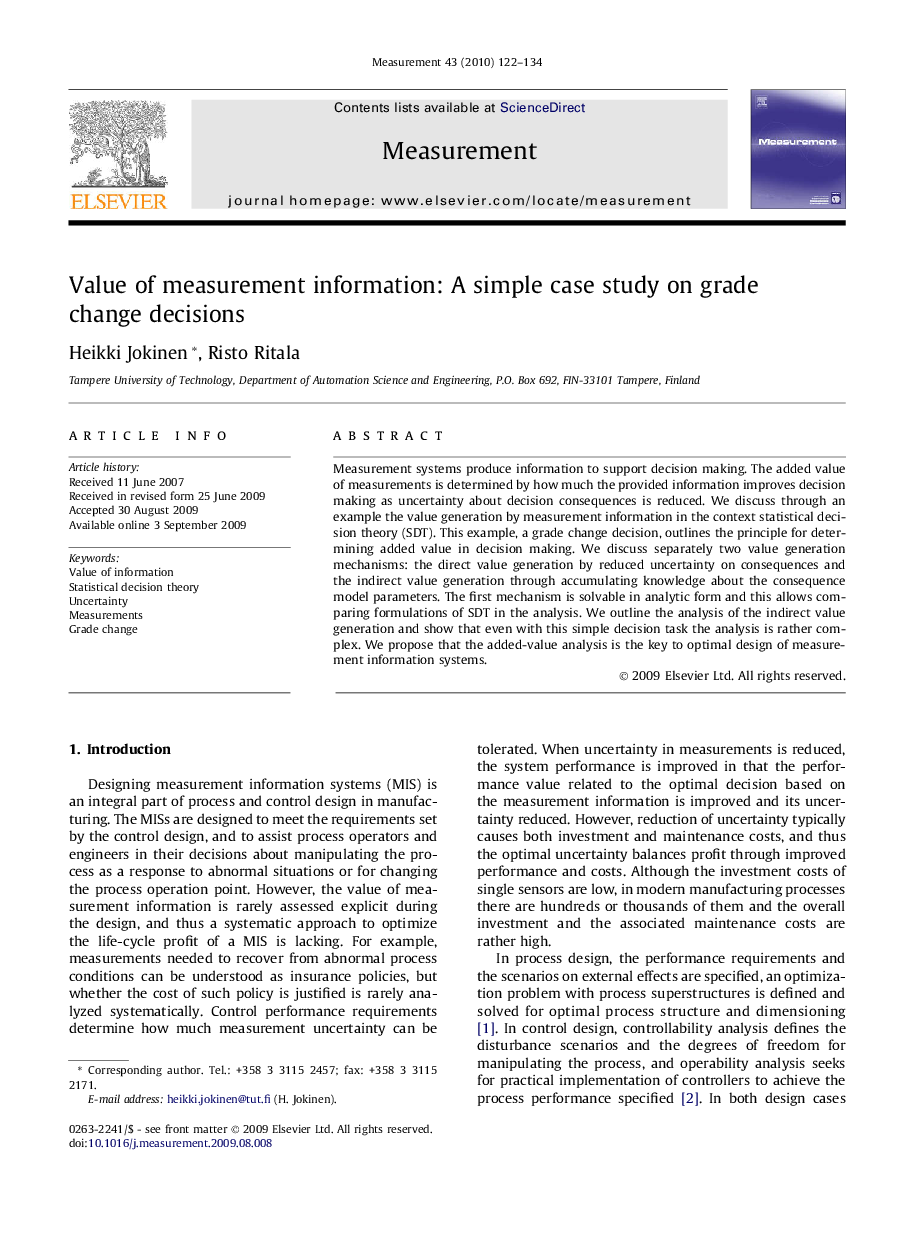| Article ID | Journal | Published Year | Pages | File Type |
|---|---|---|---|---|
| 727786 | Measurement | 2010 | 13 Pages |
Abstract
Measurement systems produce information to support decision making. The added value of measurements is determined by how much the provided information improves decision making as uncertainty about decision consequences is reduced. We discuss through an example the value generation by measurement information in the context statistical decision theory (SDT). This example, a grade change decision, outlines the principle for determining added value in decision making. We discuss separately two value generation mechanisms: the direct value generation by reduced uncertainty on consequences and the indirect value generation through accumulating knowledge about the consequence model parameters. The first mechanism is solvable in analytic form and this allows comparing formulations of SDT in the analysis. We outline the analysis of the indirect value generation and show that even with this simple decision task the analysis is rather complex. We propose that the added-value analysis is the key to optimal design of measurement information systems.
Related Topics
Physical Sciences and Engineering
Engineering
Control and Systems Engineering
Authors
Heikki Jokinen, Risto Ritala,
